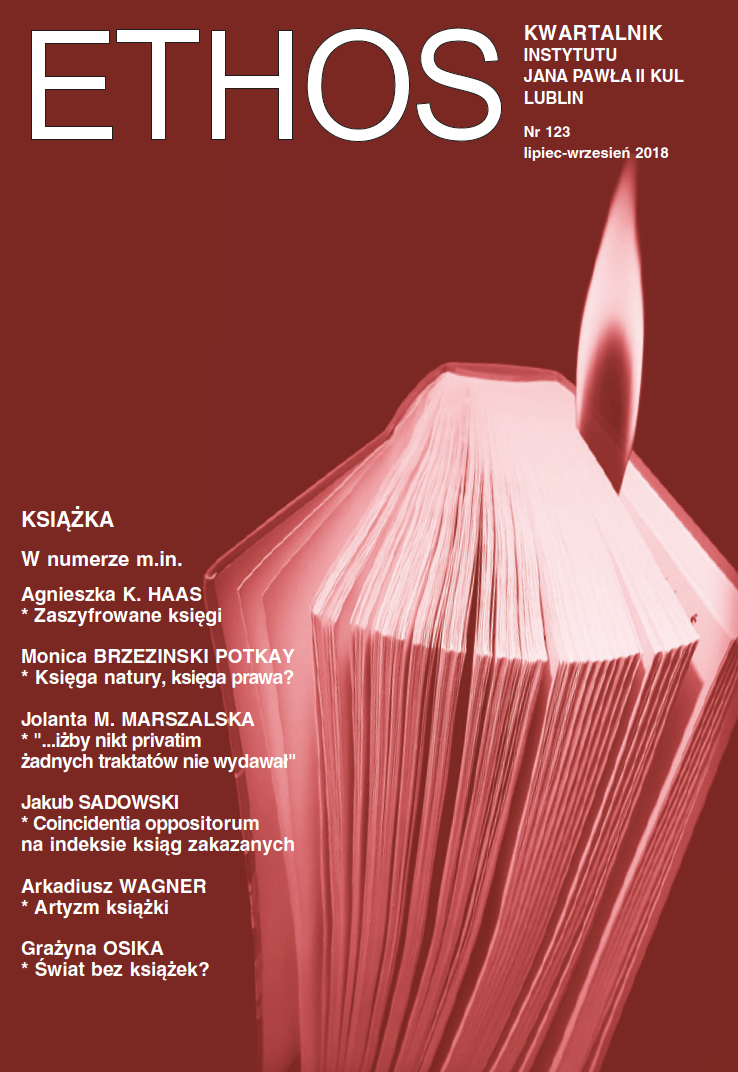ROZWAŻANIA O DRUKU I O PRZYSZŁOŚCI KSIĄŻKI. Marshalla McLuhana teoria mediów
Refl ections on Print and the Future of Books:
Marshall McLuhan’s Media Theory
Author(s): Kalina KukiełkoSubject(s): Studies of Literature
Published by: Katolicki Uniwersytet Lubelski Jana Pawła II - Instytut Jana Pawła II, Wydział Filozofii
Keywords: Marshall McLuhan; Johannes Gutenberg; print; printing press; movable type; the history of books; the end of books; transformation of culture; technological determinism; media theory
Summary/Abstract: Marshall McLuhan, one of the most interesting but also most underestimated thinkers of late-twentieth-century, was mainly concerned with the impact of the media on individual and social human life. Although, in his interpretation, the term ‘medium’ is understood very broadly and covers all human products regardless of their purpose, McLuhan certainly focused on those elements of human production that serve communicating and passing information. As a representative of the so-called technological determinism he assumed that invention and dissemination of new ways of communication has far-reaching consequences not only in direct interpersonal relations, but also in the shape of the society and culture in which the new media operate. In this context, an interesting theme of McLuhan’s reflections is the use of movable type in the printing press introduced by Johannes Gutenberg and the related sequence of events that changed the face of Western culture. Mechanization of the printing process influenced, among other things, the way books function in the sociocultural milieu. According to McLuhan, the book is a medium of particular importance. This view may be related to his rootedness in literary studies and his personal fascination with literature, or, perhaps, simply to the fact that the book is “the most powerful object of our time,” as Keith Houston observes. What is the printed book that it has ousted the handwritten one? How does the printed text of the book influence its readers? What is, in this context, the difference between printing and handwriting? And, above all, what is the future of books in the age of electronic media? McLuhan has attempted to answer these questions in two of his best-known works: The Gutenberg Galaxy and Understanding Media. Among the different interpretations of the views presented in these volumes, the opinion of their Polish commentator who refers to the actual end of the existence of printed books seems particularly interesting.
Journal: Ethos. Kwartalnik Instytutu Jana Pawła II KUL
- Issue Year: 31/2018
- Issue No: 3
- Page Range: 210-227
- Page Count: 18
- Language: Polish
- Content File-PDF

